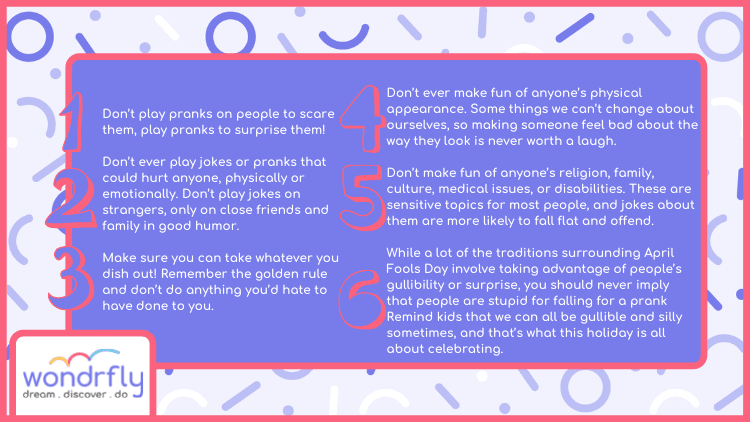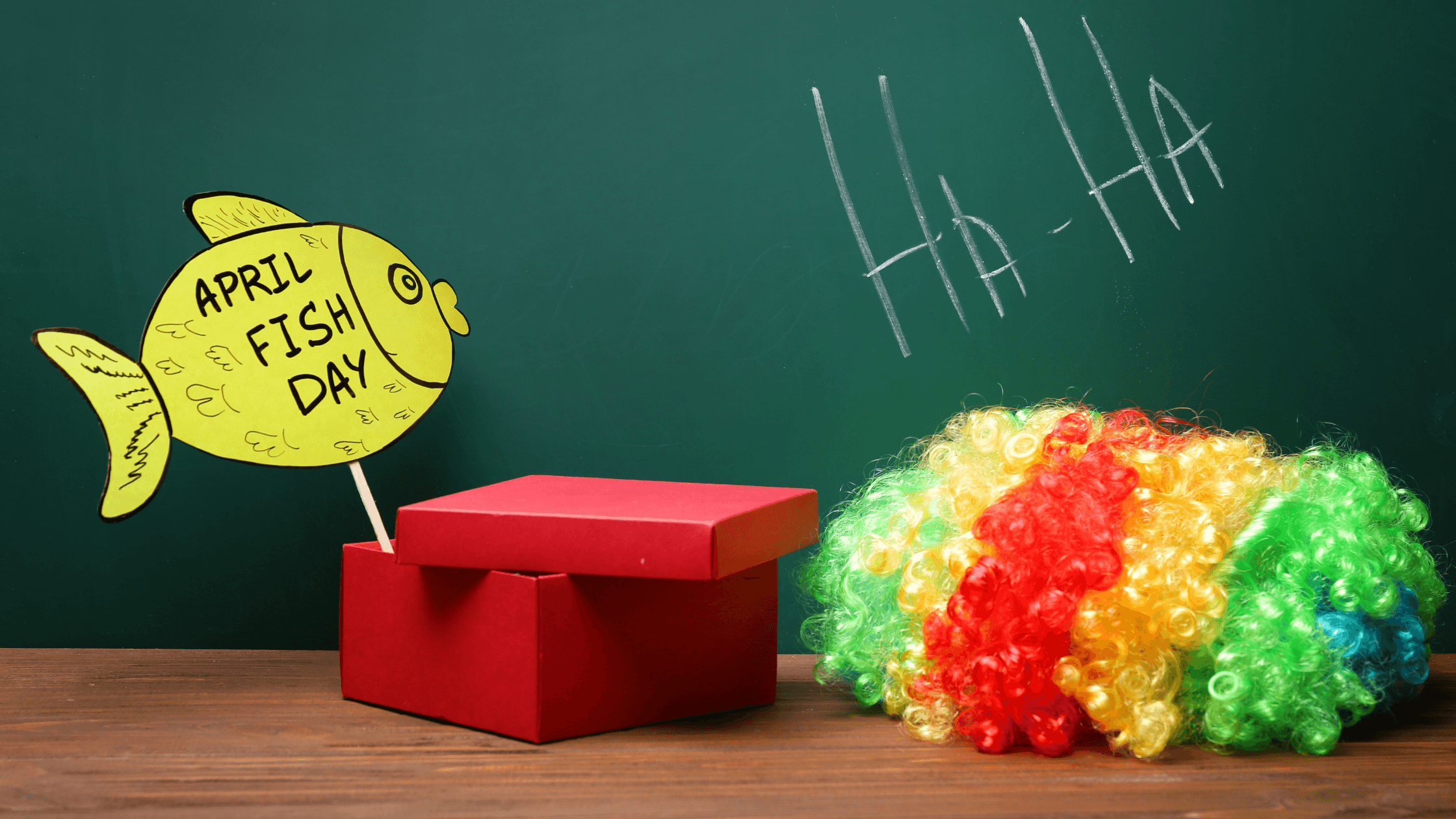April Fools’ Day is often notorious for the wrong reasons: because of harmful and mean-spirited pranks. However, April Fools’ Day is also used as an opportunity to celebrate silliness and have fun with harmless pranks. There are plenty of ways to celebrate April Fools’ Day in a way everyone can enjoy, with no hurt feelings. And there are plenty of lessons your child can learn from this extraordinary day!
More Than Just a Day for Pranks
One opportunity to shift April Fools’ Day focus from pranks to learning lies in teaching kids the fascinating history of the holiday. In fact, no one quite knows how the holiday got started, but there are a few prevailing theories.
1. April Fools’ Day Started Because of the Gregorian Calendar
This theory holds that the switch to the Gregorian calendar (the same calendar we use today) in ancient Roman times resulted in April Fools’ Day. In the new Gregorian calendar, the new year was celebrated on January 1st, but prior to that, it had been celebrated on April 1st. Apparently, in the years following the switch, some people forgot and kept on ringing in the new year on April 1st. Others found these behind-the-times individuals to be funny and nicknamed them “April Fools”.
2. April Fools’ Day Originates from a Roman Festival
Some historians believe April Fools’ Day to be linked to the Roman festival called Hilaria, celebrated at the end of March. During Hilaria, followers of the goddess Cybele dressed up as politicians and magistrates and satirized their behavior. It just goes to show there’s a long legacy of political commentary in comedy!
3. April Fools’ Day Marks the Vernal Equinox
The Vernal, or Spring, Equinox is one of two days out of the whole year in the northern hemisphere when the day is exactly as long as the night. The Vernal Equinox has been celebrated as a day to give thanks for the springtime since ancient times. Some also believe that the reason we associate this day with silliness and jokes is that Mother Nature likes to prank us in the springtime with unpredictable weather!
More Fun Facts About April Fools’ Day
Keep your child learning with these interesting tidbits about April Fools’ Day celebrations all over the world.
-
In France, the holiday developed into Poisson D’Avril or April Fish Day. Poisson D’Avril, as an expression, refers to a young fish that is easy to catch, or, by extension, a very naïve and gullible person. There’s a game tied to the festivities where one party tries to attach a paper fish to the other party’s back without them noticing. Then, when the fish is finally found, everyone shouts “Poisson D’Avril!” akin to the way we say “April Fools!”.
-
In the United Kingdom, the holiday is split into two variations. There’s Hunting the Gowk, and Taillie Day. Hunting the Gowk is a day when it’s customary to send friends on fake or useless errands. It’s called this because a Gowk is another name for a Cuckoo bird, which symbolizes a foolish person. Then, there’s Taillie Day, where people try to attach fake tails to each other’s rear ends without them noticing. It’s very similar to Poisson D’Avril, in fact!
-
In the modern day, many news channels broadcast fake stories on April Fools’ Day as jokes. For example, in 1957, the BBC reported that farmers in Switzerland were growing spaghetti noodles on trees! The story was accompanied by staged videos of farmers “harvesting” cooked spaghetti. How silly!
7 Tips For a Safe, Happy, and Healthy April Fools’ Day
Give your kid some advice this April Fools’ Day to help them celebrate in a positive way.

Are you looking for ways to keep your kids entertained and learning year-round? Is your family located in Jersey City or Hoboken? Try out the simplest way to discover and book kids’ activities near you… Wondrfly!
